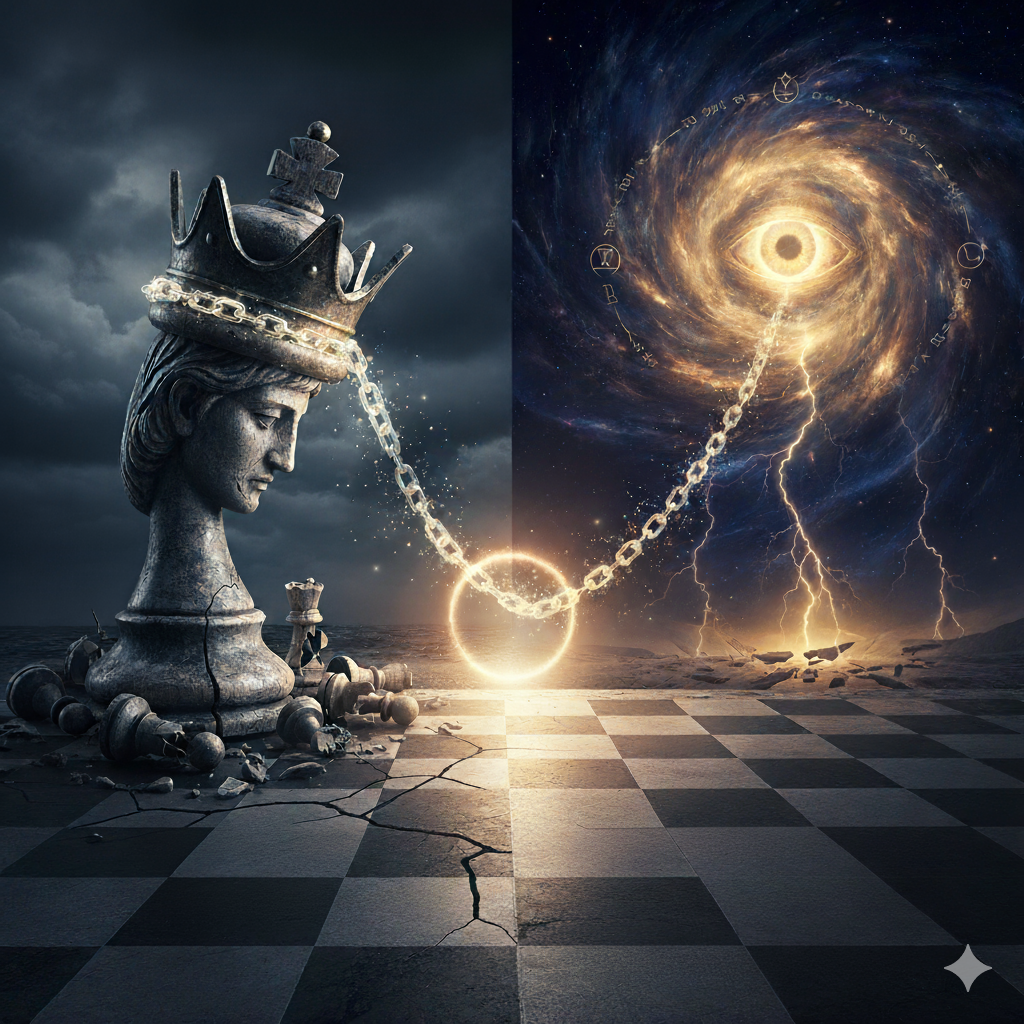“Blame” is a deceptively small word for something that shapes entire lives.
A subtle crown — heavy, invisible, and often worn without choice.
At its core, blame is the act of assigning responsibility for pain — a way to make sense of suffering by locating its source.
But like fire, it can either illuminate or destroy.
♔ The King’s Burden
In chess, the king moves one square at a time — slow, deliberate, measured.
His very presence commands the board, yet his power is paradoxically fragile.
Every mistake by his army — every lost pawn, every fallen rook — reflects upon him.
When the king is cornered, it is he who bears the blame,
even if he never lifted a sword.
This is the nature of leadership, and of consciousness itself:
to be awake is to be accountable.
To be sovereign is to face the consequences of the realm’s chaos.
⚖️ The Double Edge of Blame
Used wisely, blame becomes discernment —
the capacity to see cause and effect clearly,
to learn from mistakes, to protect boundaries.
But misused, it turns into projection —
a refusal to face one’s own shadow,
an evasion of growth.
It clouds perception,
turns allies into threats,
and converts lessons into wounds.
🌩️ The Wrath of the Divine
In the ancient imagination, the wrath of God was not mere anger —
it was a mirror of divine justice,
a reflection of imbalance restored through force.
Wrath was not the tantrum of a deity,
but the echo of a world out of harmony.
It was blame cosmicized —
the universe setting itself right again.
So perhaps human blame is a smaller current of that same energy —
a fragile echo of the cosmic attempt to impose order on confusion.
Yet to live wisely, one must learn when to release blame
and replace it with reverence:
to see not punishment, but pattern;
not wrath, but awakening.
♜ The Lesson of the King
The king, if he survives, does not blame his pawns.
He simply learns to see the whole board more clearly.
And maybe that is what the divine does too —
not to condemn,
but to remind.
Blame says: “You hurt me.”
Responsibility says: “Here’s what I can do now.”
Between those two statements lies the threshold of maturity —
the quiet moment where resentment turns into awareness,
and awareness into freedom.

Leave a Reply